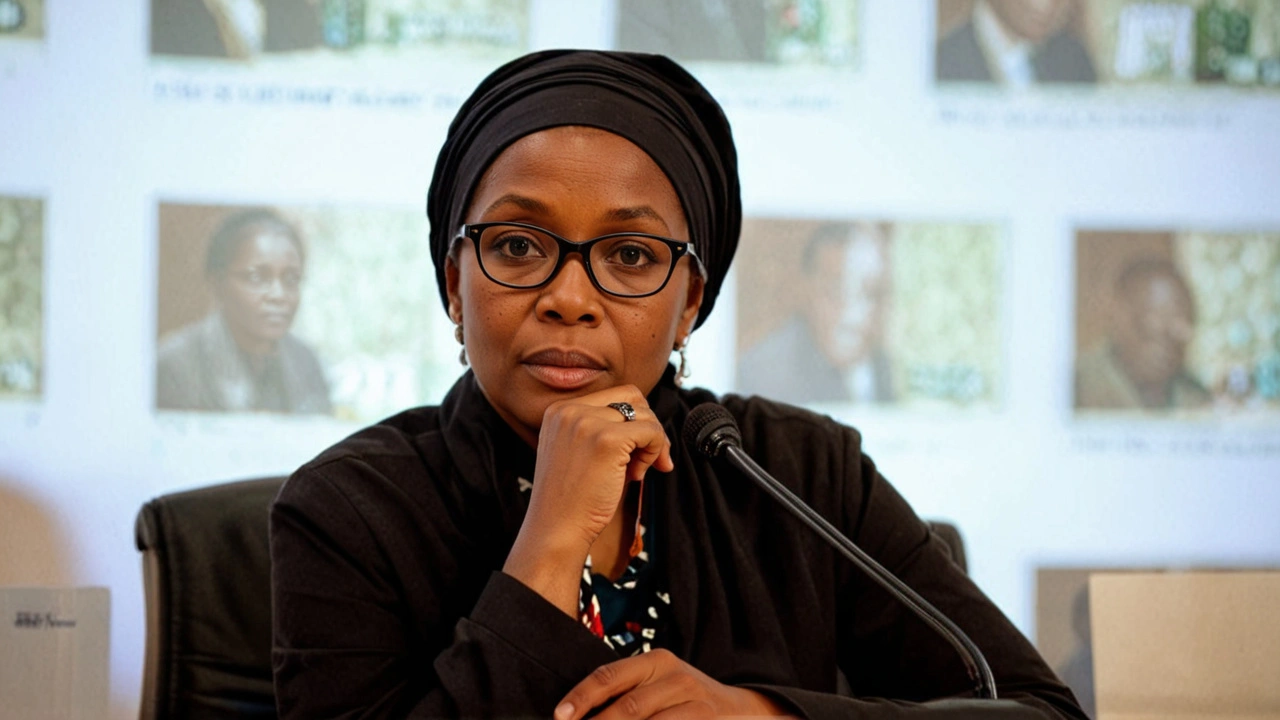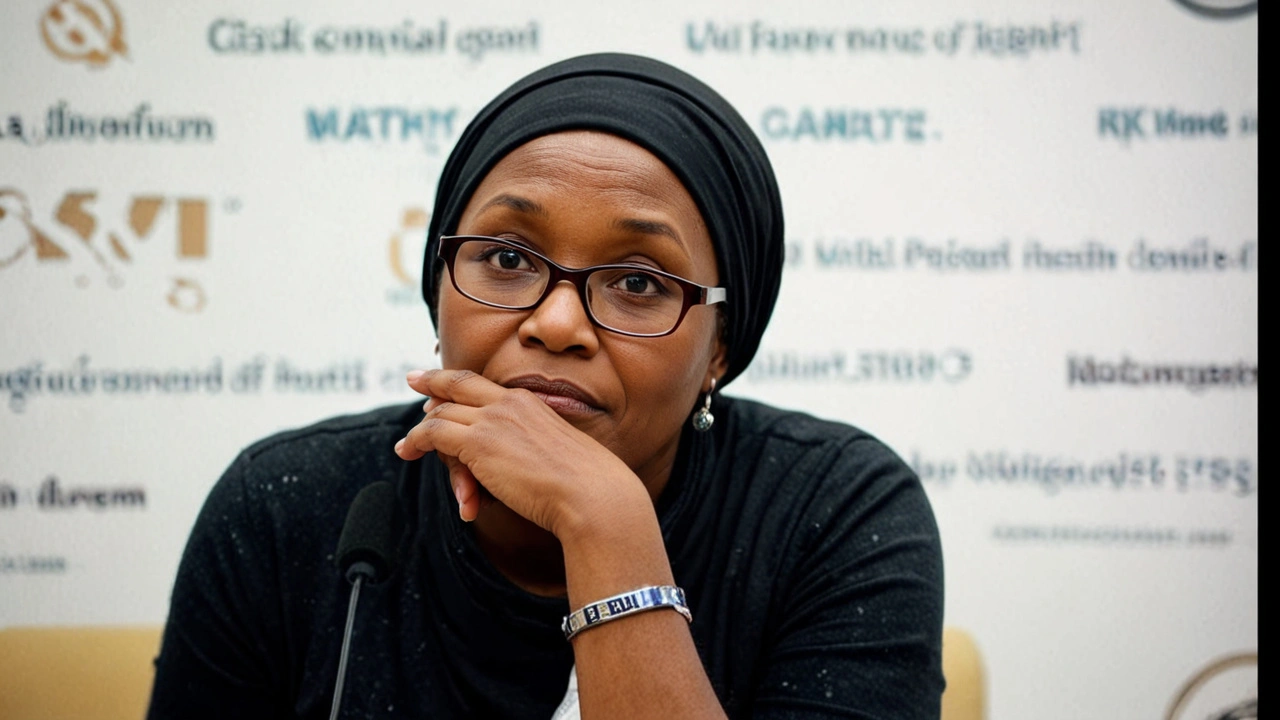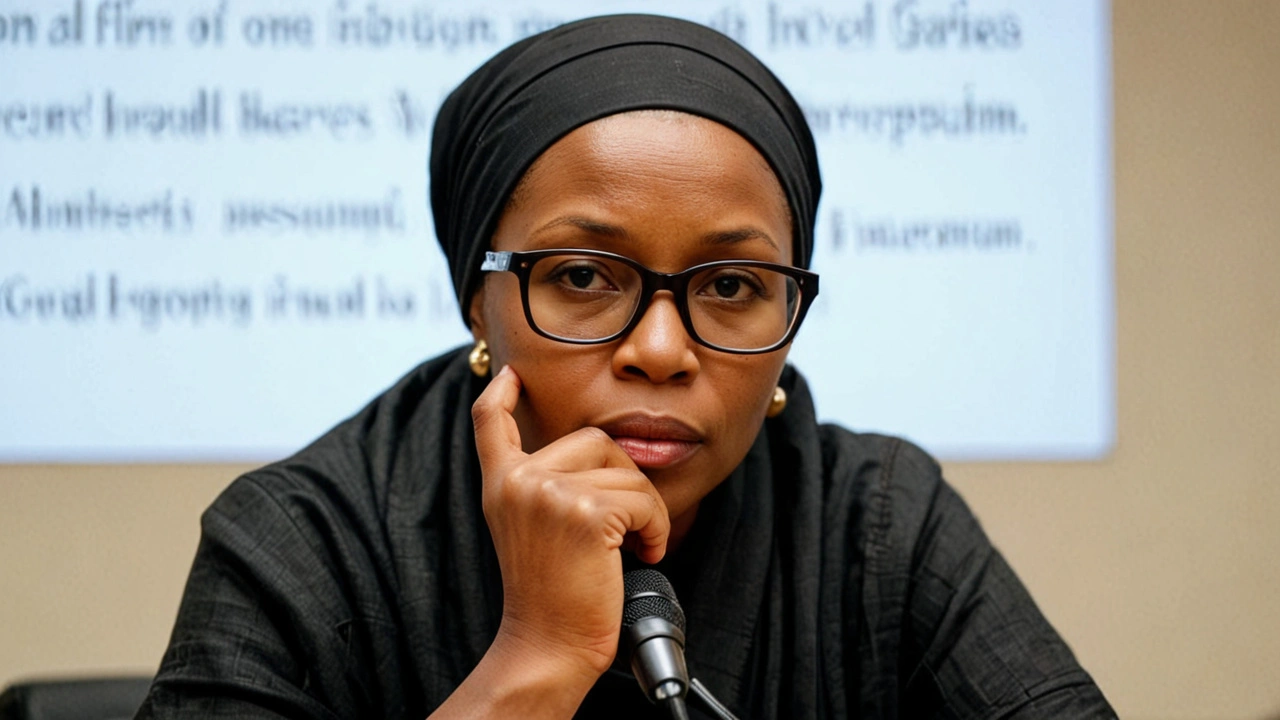
The Life Esidimeni Tragedy: A Grim Chapter Unfolds
The Pretoria High Court has brought some form of closure to one of South Africa's most harrowing healthcare tragedies, delivering a ruling that has vast implications for accountability within the public health system. On the bench, Judge Mmonoa Teffo laid down a verdict that named and shamed those responsible for the deaths of nine mental health patients back in 2016.
During this period, a significant shift occurred within the Gauteng Department of Health. Former MEC Qedani Mahlangu, alongside mental health director Dr. Makgabo Manamela, presided over the decision to transfer 144 mental healthcare users from the Life Esidimeni health facility to various non-governmental organizations (NGOs). This decision did not emerge in a vacuum; instead, it was a product of terminative actions against Life Esidimeni, a facility known for its long-standing service to the community.
The Inquest Begins
Launched in July 2021, the inquest aimed to ascertain the causes and culpabilities surrounding the deaths of these vulnerable individuals. It has been an exhaustive investigative endeavor, one that required peeling away the layers of administrative decisions, overlooked warnings, and ignored advice. Various experts testified, painting a picture of an imminent crisis, one blatantly ignored by those in power. The rhetoric from the bench was exacting, encapsulating the magnitude of negligence demonstrated by the involved parties.
The Pretoria High Court's judgment not only shed light on the operational and ethical failings but also began the arduous task of securing justice for the victims. Nine mental health patients—Matlakala Motsoahae, Virginia Machpelah, Terence Chaba, Frans Dekker, Charity Ratsotso, Deborah Phetla, Lucky Maseko, Josiah Daniels, and Koketso Mogwerani—stand as the heartbreaking symbols of this preventable tragedy. Their names echo throughout the corridors of justice, demanding accountability and change.
Negligence in Plain Sight
The decision to terminate Life Esidimeni's contract came amid several explicit warnings. Experts and stakeholders within and outside the healthcare sector voiced their concerns, highlighting the potential ramifications of such a decision. Despite the mounting pressure and adverse advice, Mahlangu's firm resolve led to the contract's termination. This change forced patients out of a regulated, equipped environment into capacities that, as evidenced, were unequipped to handle their needs.
From under-equipped facilities to unprepared staff, the shift to the NGOs was anything but seamless. Reports soon chronicled dire conditions—patients were missing, suffering from malnourishment, battling infections, and were deserted without the necessary medical care. The verdict reiterated that these calamitous consequences were not spontaneous failures but direct results of a chain of negligent decisions from the top down.

Families Demand Accountability
In the aftermath of Judge Teffo's ruling, there is a palpable sense of vindication among the families of the victims, though the pain of their loss remains. The ruling paves the way for criminal charges against Mahlangu and Manamela. For the families, this judgment is a step towards justice but also a stark reminder of their irreplaceable loss.
The psychological and emotional toll on these families has been immense. They had entrusted the care of their loved ones to the health system, only to face an unimaginable betrayal. Courtroom testimonies were fraught with emotions as families recounted the final days of their loved ones, painting a heart-wrenching tableau of neglect and despair.
The Road Ahead: Reforms and Lessons
While the ruling has provided a semblance of justice, it also raises broader questions about the structural integrity of the public health system. There have been calls for systemic reforms aimed at bolstering oversight, ensuring transparency, and reinforcing ethical governance. The Life Esidimeni tragedy serves as a chilling reminder of what can transpire when accountability is sidelined and administrative errors go unchallenged.
Experts and advocacy groups are already pushing for policy changes that would prevent such tragedies in the future. There's a growing consensus that a singular focus on cost-cutting measures, without assessing the broader impacts, can have devastating consequences. Recommendations include robust training programs for caregivers, stringent scrutiny of potential service providers, and a more transparent decision-making process within public health departments.

A Landmark Ruling
The judgment against Mahlangu and Manamela cannot undo the damage but stands as a significant legal and moral stance against negligence in healthcare administration. It sends a powerful message that those responsible for public well-being must be held to the highest standards of accountability.
South Africa, still in the throes of addressing its multifaceted public health challenges, must now reckon with the lessons from the Life Esidimeni tragedy. The broader societal implications of this judgment should not be lost amidst the legal jargon—real lives and real families were forever altered by a chain of avoidable decisions.
The Human Cost
This case draws acute attention to the social and ethical responsibilities incumbent upon public office holders. It underscores the intrinsic value of every life and the grave consequences of administrative negligence. Matlakala Motsoahae, Virginia Machpelah, Terence Chaba, Frans Dekker, Charity Ratsotso, Deborah Phetla, Lucky Maseko, Josiah Daniels, and Koketso Mogwerani are more than names—they symbolize the urgent need for reform, accountability, and above all, empathy within the structures that govern public health.
As South Africa grapples with this legal milestone, it also embarks on a broader journey of systemic introspection and reconstruction. The hope is that the monumental loss suffered by these families will not be in vain but instead serve as a transforming agent towards a more ethical and accountable health system.